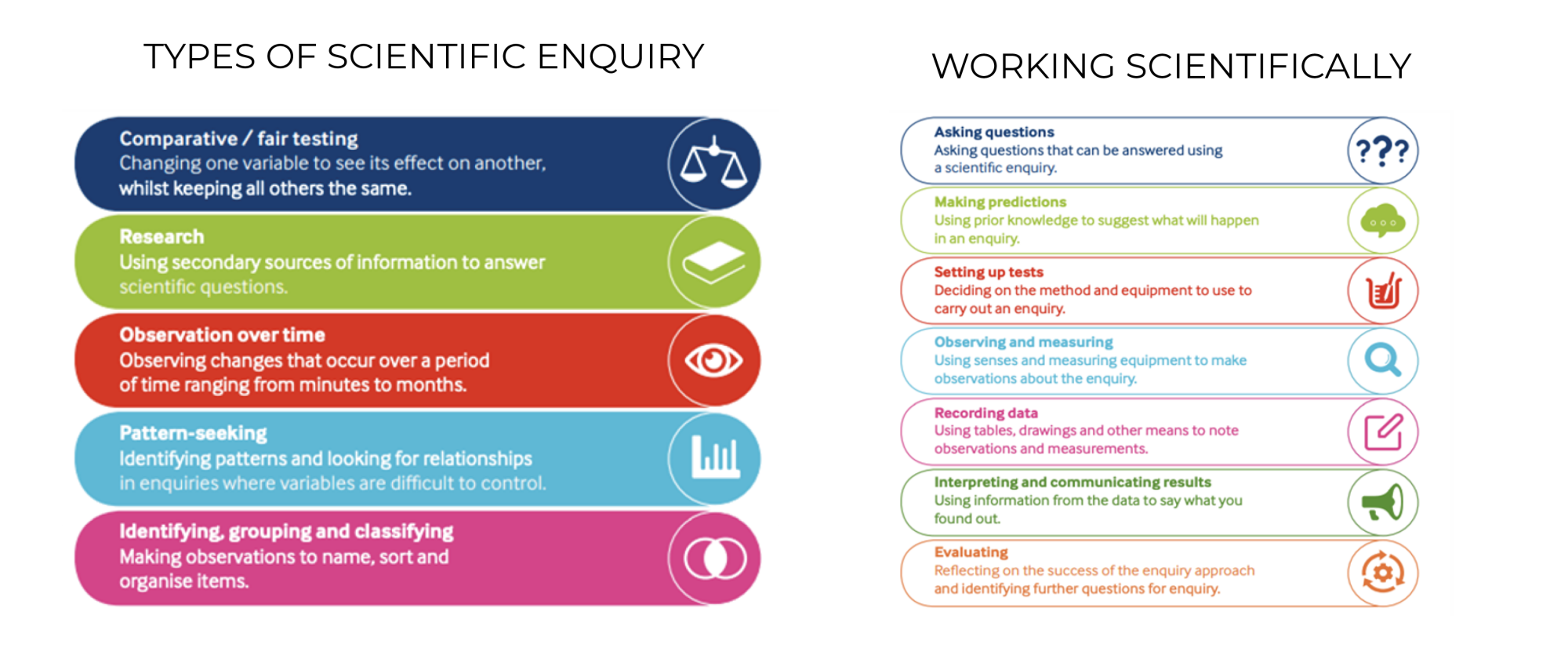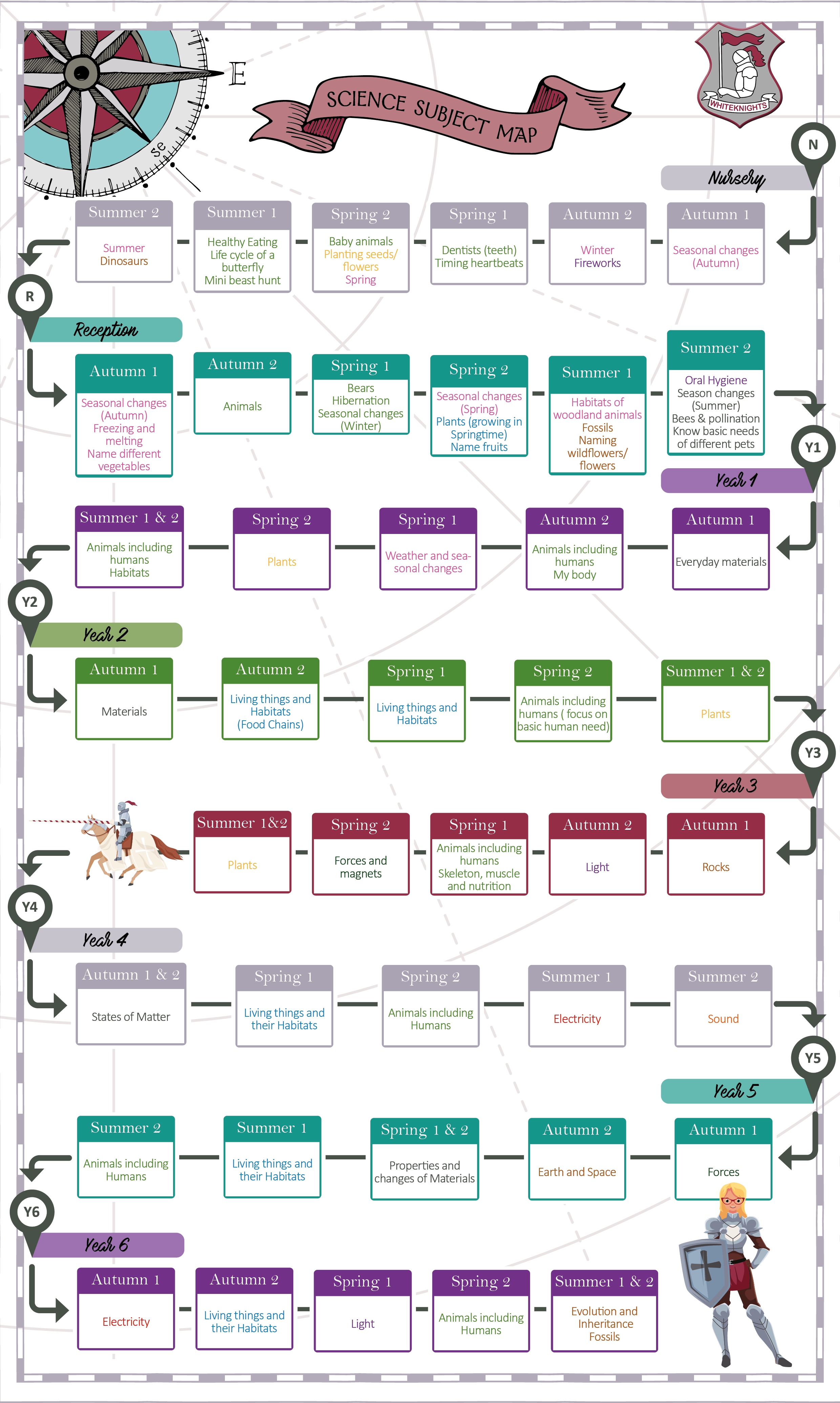Science
At Whiteknights, pupils embark on the exciting journey of exploring the ‘Big Ideas’ in science, which encompass the strands of biology, physics, and chemistry. We recognise that skills and knowledge in science are equally important in helping children to understand the world around them, both now and in the future. Our aim is for pupils to nurture their natural curiosity and develop scientific ways of thinking.
In our school, pupils:
-
Explore a diverse range of key scientists and the scientific methods they used and developed
-
Use appropriate scientific vocabulary
-
Ask and answer scientific questions
-
Carry out investigations involving a range of enquiry types and apply the skills of working scientifically
Intent
-
All pupils will make strong progress in Science and develop confidence in planning, executing, and evaluating scientific investigations.
-
Learning is sequenced so pupils build on prior knowledge, exploring small steps towards the ten big ideas in Science through experiments and discovery.
-
Pupils develop scientific knowledge through reading quality texts across the curriculum, fostering curiosity and enjoyment.
-
The Science curriculum is designed to be inclusive, with a focus on disadvantaged pupils, hands-on experiences, Science Club, and Science Lab opportunities.
-
Pupils will enjoy learning about Science, developing age-appropriate vocabulary, communication skills, and the confidence to access future learning.
-
Pupils will learn about significant scientific figures and events, understanding their impact on our understanding of the scientific world.
-
Enrichment opportunities such as trips, guest speakers, outdoor learning, and nutritional science activities deepen pupils’ understanding.
Implementation
-
Lessons follow clear objectives with modelling, structured questioning, and inclusive participation strategies (e.g., “no hands up” policy).
-
Pupils’ scientific vocabulary and conceptual understanding are developed and reinforced.
-
Feedback, questioning, and formative assessment ensure pupils know more and remember more, while misconceptions are addressed promptly.
-
Key concepts are revisited to embed knowledge in long-term memory, supported by quizzes, home learning, and investigative projects.
-
Pupils learn to select and use resources independently and reflect on their learning through exercise books, lab activities, and Science Club experiments.
-
Teachers ensure pupils understand how Science links to the wider curriculum and real-world applications.
Impact
-
Pupils confidently articulate their scientific understanding and demonstrate progress in books, discussions, and investigations.
-
Lessons ensure mastery of the curriculum, with positive progress visible across all pupil groups.
-
Pupils develop a love of Science, knowledge of key scientific concepts, and the skills to explore, investigate, and reason scientifically.
-
Engagement in enrichment activities, trips, and labs deepens pupils’ curiosity and understanding of the natural world.
-
Pupils are confident communicators, able to discuss scientific ideas with accuracy, fluency, and sensitivity.
-
Quality first teaching and assessment ensure pupils know more, remember more, and are prepared for future stages in education.
-
Science promotes collaborative skills, problem-solving, critical thinking, and respect for evidence-based reasoning.


